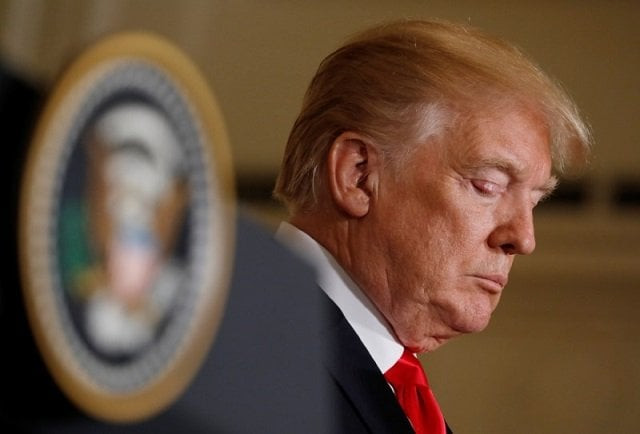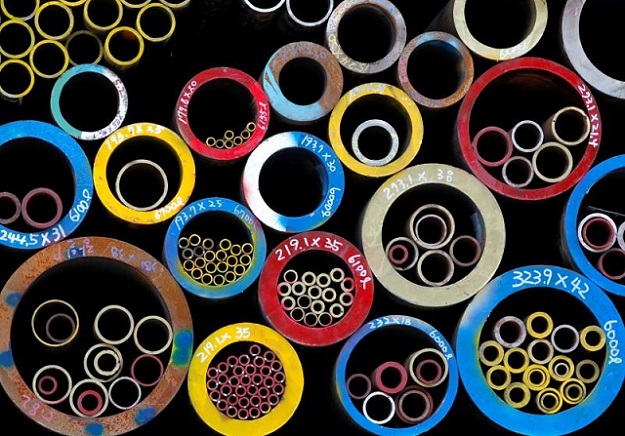Asia's biggest exporters bristle over US tariffs, fanning trade war fears
Duties of 25 per cent on steel & 10 per cent on aluminum will be formally announced next week

Fears of an escalating trade war roiled Asian markets, hitting the share prices of steelmakers and manufacturers supplying US markets particularly hard.
US stock futures pointed to a steady start on Friday after a sharp fall following Trump’s Thursday announcement.
Trump said the duties of 25 per cent on steel and 10 per cent on aluminum would be formally announced next week, although White House officials later said some details still needed to be ironed out.
“The imposition of a tariff like this will do nothing other than distort trade and ultimately, we believe, will lead to a loss of jobs,” Australian trade minister Steven Ciobo told reporters in Sydney.
“My concern remains that on the back of actions like this we could see retaliatory measures that are put in place by other major economies. That is in no-one’s interest.”
Australia, which has championed the free-trade Trans Pacific Partnership that Trump pulled the United States out of, has sought an exemption for its steel and aluminum exports to the United States, Ciobo added.
“All countries steel and aluminum industries are facing difficulties,” Chinese Foreign Ministry spokeswoman Hua Chunying told a regular briefing in Beijing.
“China urges the United States to show restraint in using protective trade measures, respect multilateral trade rules, and make a positive contribution to international trade order.”
Steel has become a key focus for Trump, who pledged to restore the US industry and punish what he sees as unfair trade practices, particularly by China.
Although China only accounts for 2 per cent of US steel imports, its massive industry expansion has helped produce a global glut of steel that has driven down prices.
“The impact on China is not big,” said Li Xinchuang, vice secretary-general of the China Iron and Steel Association. “Nothing can be done about Trump. We are already numb to him.”
South Korea, the third-largest steel exporter to the United States after Canada and Brazil, said it will keep talking to US officials until Washington’s plans for tariffs are finalised.
“For us, the worst case scenario was a 54 per cent tariff,” said a South Korean trade ministry official who declined to be named as he was not authorized to speak to media.
 Steel pipes for sale are displayed at a shop in the Mullae-dong steel product district in Seoul July 13, 2010 PHOTO: REUTERS
Steel pipes for sale are displayed at a shop in the Mullae-dong steel product district in Seoul July 13, 2010 PHOTO: REUTERSNonetheless, if Trump pursues his proposal for a 25 per cent global steel tariff, “that will still affect our steel exports to the US,” the official added.
Canada, Brazil and the EU said they would look to take action over the tariffs.
National Security
Moody’s Investors Service noted that steel and aluminum are not a major economic factor even for big Asian exporters, typically accounting for less than 1 per cent of gross domestic product or exports.
Asian steelmakers, however, do worry US tariffs could result in their domestic markets becoming flooded with steel products that have nowhere else to go.
“We are concerned about how other exporters react, what will happen with steel that cannot be sold to the US,” Vikrom Wacharakrup, chairman of the Federation of Thai Industries’ iron and steel industry group, told Reuters. Thailand exports steel mainly to Asia but also the United States.
The Trump administration also cited national security interests for its action, saying the United States needs domestic supplies for its tanks and warships.
Contrary to the action announced by Trump on Thursday, the Department of Defense had recommended targeted steel tariffs and a delay in aluminum duties.
“We continue to seek clarification,” said Japanese Trade and Industry Minister Hiroshige Seko. “I don’t think exports of steel and aluminum from Japan, which is a US ally, damages US national security in any way, and we would like to explain that to the US”
India also raised concerns about the use of the US national security interest provisions, under what is known as a Section 232 investigation.
“We have only 2 per cent of our exports to US so no immediate dent, but validity of Section 232 is stretched to be used as a tariff barrier,” India’s Steel Secretary Aruna Sharma told Reuters.



















COMMENTS
Comments are moderated and generally will be posted if they are on-topic and not abusive.
For more information, please see our Comments FAQ